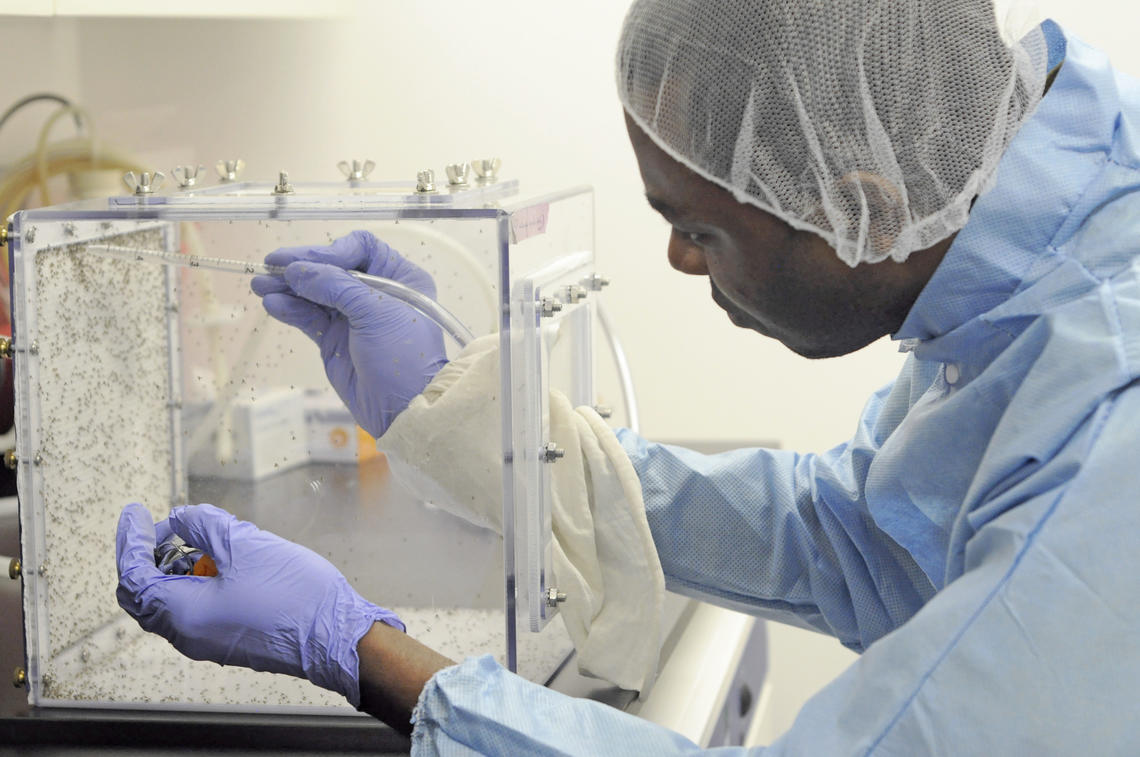July 29, 2020
UCalgary researchers unlock new insights that could help with vaccine development

Vaccination is the most effective public health measure to prevent infectious diseases. Vaccines can greatly reduce the risk of infection by working with the body’s natural defences to safely develop immunity to disease. However, the immune system fights infection in many different ways, and in order to be effective, a vaccine must trigger the right type of immune response to recognize and destroy a specific virus, bacteria or parasite.
The majority of vaccines, such as those for polio and measles, stimulate a type of immune response called antibody-mediated immunity. But for some chronic infectious diseases such as tuberculosis and malaria, a different type of immune response, called cell-mediated immunity, is needed. Unfortunately, efforts to create a vaccine that prompt a cell-mediated immune response have had limited success.
Now, researchers at the University of Calgary’s Snyder Institute for Chronic Diseases have unlocked new insights that may help in developing this type of vaccine.
Search for a 'balanced defence'
“What we already know is vaccination often involves polarizing the immune system towards the type of immune response believed to provide protection to a given infection and away from responses believed to be non-protective,” says Dr. Nathan Peters, PhD, study lead, associate professor at the University of Calgary’s Cumming School of Medicine (CSM) and Faculty of Veterinary Medicine (UCVM).
“Because of this approach, we’ve been very focused on generating the cell-mediated response that is required to directly fight these chronic infections. What we have realized through our research is that types of immunity that we didn’t think were important, or were thought to be non-protective, are actually critical to regulate the protective cell-mediated response to ensure the immune system mounts a balanced defence.”
The findings, published in Cell Host and Microbe, show that rather than enhancing protection, a highly polarized cell-mediated response that was believed to be protective was, in fact, detrimental.

Pauline Zulueta, Cumming School of Medicine
Excessive polarization in the response can backfire
“By studying the regulation of the body’s own immune response to infection, our team has found that excessive polarization can actually backfire,” says Dr. Matheus Carneiro, PhD, postdoctoral scholar and co-author on the study. “Understanding this drove us to investigate the importance of other aspects of the immune response during these infections. We found these other responses played a big role in regulating excessive inflammation, which, in the absence of regulation, actually facilitated infection.”
Peters says this fundamental observation could also help inform vaccine design for infectious diseases such as COVID-19, malaria, tuberculosis, and the parasitic disease leishmaniasis.
“These observations provide new insight into the regulation of immunity against infectious diseases and could provide a more holistic framework to design vaccines against those infections that don’t have one.” he says.

Pauline Zulueta, Cumming School of Medicine
Specialized sand flies lab
The work was done in a specialized lab at the CSM which uses sand flies to understand more about transmission of diseases and our immune response to them. The state-of-the-art insectary, built with support from the Canadian Foundation for Innovation (CFI) and Alberta Economic Development and Trade, houses a sand fly colony, which needs highly specialized care to thrive.
The research was supported by the Canadian Institutes of Health Research, the Canadian Foundation for Innovation and by Brazilian FAPEMIG and CNPq grants.
Dr. Nathan Peters, PhD, holds a joint appointment as an associate professor in the Department of Microbiology, Immunology and Infectious Diseases at the Cumming School of Medicine (CSM) and in the Department of Comparative Biology and Experimental Medicine in the Faculty of Veterinary Medicine. He is also a member of the Snyder Institute for Chronic Diseases at the CSM.
Infections, Inflammation and Chronic Diseases
The University of Calgary is uniquely positioned to find solutions to key global challenges. Through the research strategy for Infections, Inflammation, and Chronic Diseases in the Changing Environment (IICD), top scientists lead multidisciplinary teams to understand and prevent the complex factors that threaten our health and economies.
UCalgary resources on COVID-19
For the most up-to-date information about the University of Calgary's response to the spread of COVID-19, visit the UCalgary COVID-19 Response website.





